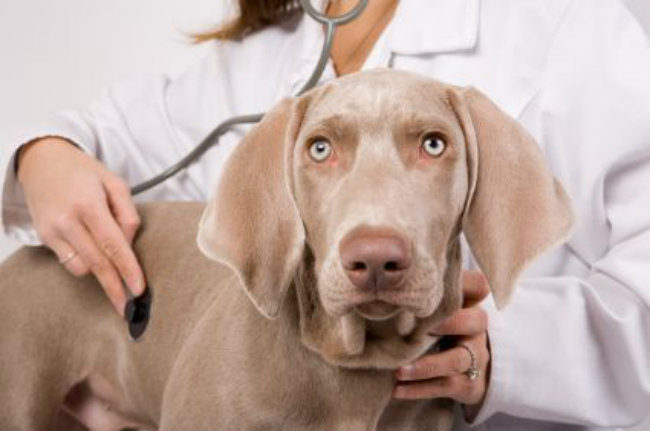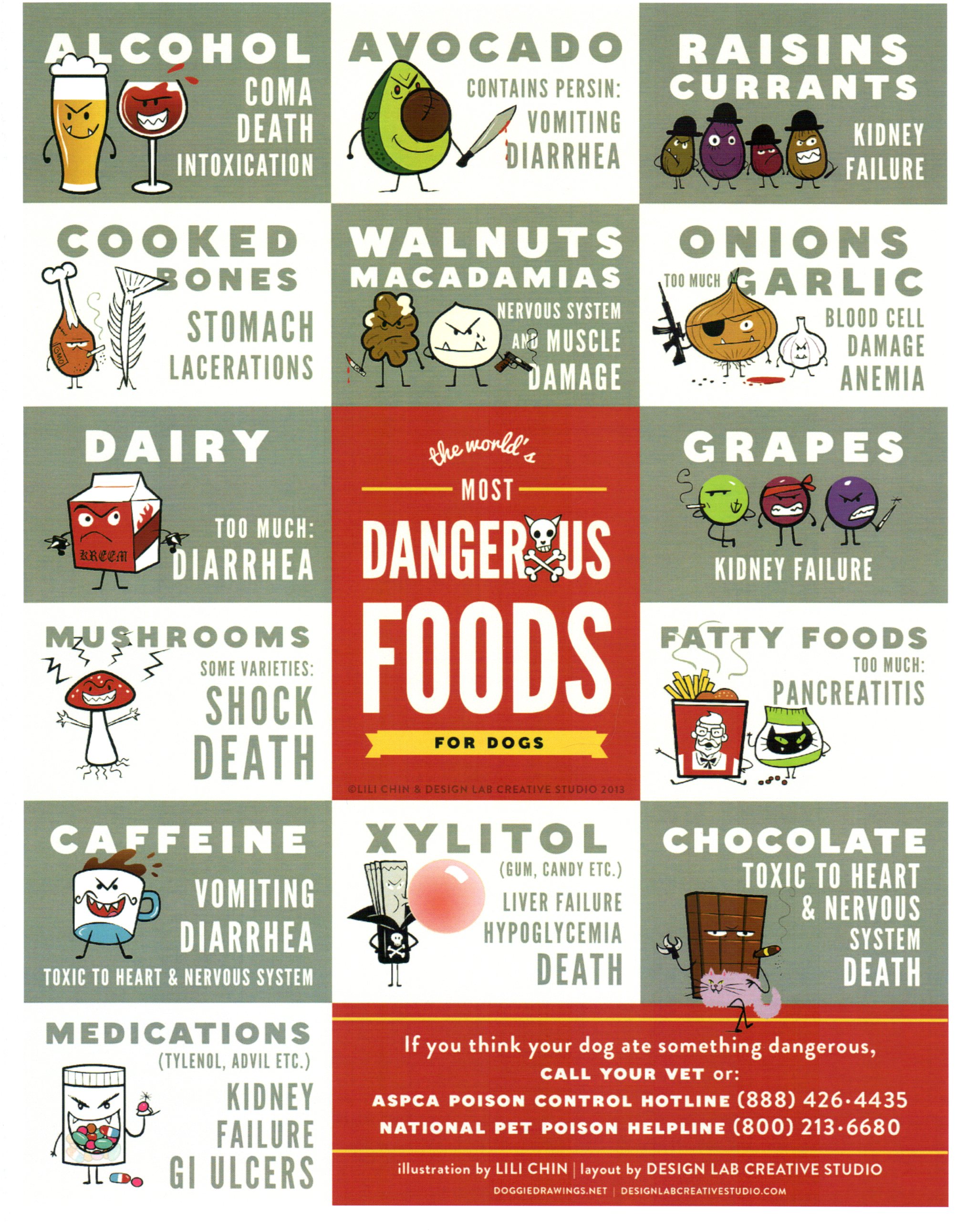
This post may contain affiliate links. We are compensated for referring customers to our affiliate partners.
Dogs love food. Sometimes they love it a little too much, vacuuming up anything they can reach even if it’s something that’s not good for them.
It’s important to know which common foods are dangerous for dogs so that they aren’t left out in the open. Some of these foods are ones that dogs may normally ignore on their own, but will become interested in if they see people eating them.
1) Caffeine and Chocolate
While it’s commonly known that chocolate is bad for dogs, the primary culprit isn’t sugar, but the presence of the stimulants caffeine and theobromine. Dogs aren’t adapted to process stimulants, and consumption of too much of them can lead to seizures and death. Unsweetened cocoa powder is actually more dangerous than most milk chocolate as it is more rich in theobromine. While most adults will know better, children and teens should be told not to give coffee or caffeinated soda to a dog as a joke to make them “hyper.” And dogs may hone in on lattes or coffee drinks that contain milk and sweeteners.
2) Alcohol
Though most adults should know better than to give caffeine to a dog as a joke, the number of “drunk dog” videos on Youtube demonstrate that some need to be told that giving dogs drinks is also a bad idea. Dogs are extremely sensitive to alcohol, much more so than humans, and even a little can cause them to vomit and stumble. Beer is particularly bad as the hops used in brewing it are also toxic to them.
Drinking the equivalent of a can of beer or more can lead to seizures and death in some breeds. While dogs usually show little interest in alcohol, they may be tempted to get into a bowl of “spiked” eggnog due to the milk and egg content. Mixed drinks with cream should also not be left unattended around a dog.
3) Xylitol
Xylitol is a sugar substitute used in many sugarless gums, candies and breath mints. It’s great for humans, as it protects teeth from harmful bacteria while also sweetening foods without adding calories.
Unfortunately, it’s terrible for dogs. Within 10 to 15 minutes after ingestion a dog’s blood sugar will drop dangerously. They may vomit, stagger or collapse. A high enough dose can cause liver failure.
A toxic dose is only 0.05 grams per pound of body weight. Just one piece of gum or one mint can be dangerously toxic to smaller dogs. In addition to not leaving these foods and gums where dogs can get at them, it’s also important to look out for chewed gum wads that have been spit out in public areas.
4) Yeast
Dogs have serious trouble digesting raw bread dough made with live yeast. it sits in their stomachs for a long period, allowing the yeast to quickly multiply and expand the dough. Distension of the stomach may lead to tissue death, but an even greater danger is the alcohol that is produced as the yeast ferments. Dogs will show signs of being drunk, and in extreme cases can die of alcohol poisoning.
5) Bones
Nursery rhymes can’t be trusted as a source of animal feeding advice. Dogs can experience a wide range of mishaps while gnawing on bones, from breaking their teeth to ingesting slivers that lacerate their digestive systems. Some types of bones are more safe than others, and this varies by breed and size, but to be on the safe side it’s best to avoid them altogether. Cooked bones are never safe under any circumstances. Larger uncooked meat bones are sometimes handled well by certain breeds, but there’s nothing that a bone offers to a dog’s health and diet that can’t be had from a safer source.
6) Raw Meat, Raw Eggs, Raw Fish and Spoiled Food
We sometimes think of dogs as having stomachs of iron that can digest nearly anything, no matter how gross. But while dogs may be more willing to eat uncooked and unpalatable food than we are, they’re just as susceptible to dangers like salmonella, E. coli and the health problems caused by mold. Don’t use the dog as a garbage disposal for unwanted food — if it’s likely to make a person sick, it’s very likely to make a dog sick too.
7) Fast Food
Food that is too high in fat (like most fast food burgers) can cause pancreatitits in dogs, especially in the smaller breeds. While it’s tempting to grab a $1 fast food burger or two to feed Fido while traveling, be sure to pack some proper dog food instead or they could experience serious health problems.
8) Garlic and Onions
Garlic and onions both damage the red blood cells of dogs. While dogs tend to avoid raw garlic and onions, they may eat them if they are mixed in with something like a soup or stew, particularly if a powdered form was used. Symptoms of toxicity usually don’t appear for several days, after which point the dog will become unusually lethargic and may pass very dark or red urine.
9) Corn on the Cob
While dogs can digest corn just fine, they’re likely to go ahead and chow down on the cob too, which can block up their intestines.
10) Raisins and Grapes
Not all dogs respond poorly to raisins and grapes, but some dogs seem to have severe reactions to them. Dogs sometimes eat them with no apparent ill effects whatsoever, but there have also been cases of kidney failure and long-term kidney disease.
11) Vitamins and Supplements Containing Iron
Most vitamins and minerals that are good for people are good for dogs too, but one major exception is iron. Dogs are very sensitive to it and don’t need any more than they already get in their diet. The concentrated amount in some supplements can cause kidney and liver damage.

